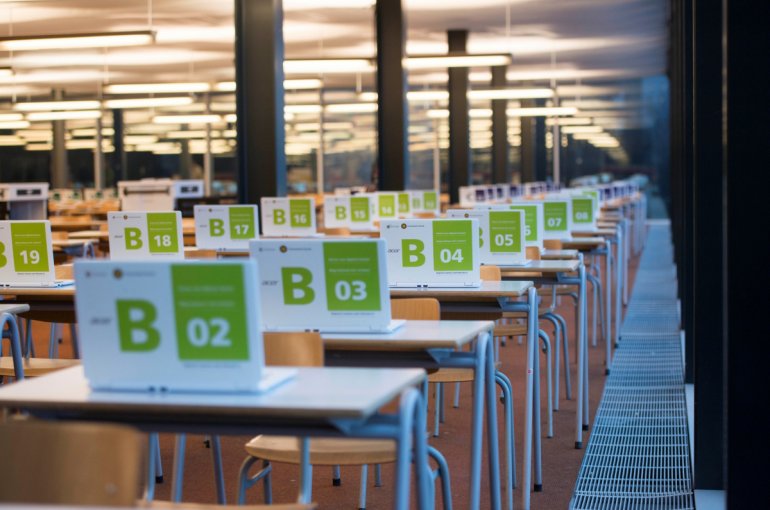Utrecht University substantially increases number of digital testing stations
Largest programmes can now simultaneously take exams on laptops as well

On 31 October, some 700 Law students will take their examinations on university laptops all at the same time. This is the first time that so many first-year students will simultaneously take an exam digitally. Utrecht University has been working on building its digital testing facilities for several years, and the flexibility of working with laptops for this purpose is unique in the Netherlands.
In 2015, Utrecht University was the first higher education institution in the Netherlands to begin using the small, budget-friendly Chromebooks for digital testing. Since then, the amount of exams taken digitally has grown from 8% to nearly one-third. Students have also indicated their preference for digital testing in a survey.
In the meantime, the number of digital testing stations across the whole university has been expanded to 1,100. As a result, it is now possible for all degree programmes – that includes the large first-year Law and Psychology courses as well – to administer simultaneous digital exams.
'Marking the open questions digitally really saves me days of work.'
Days of work saved
Casper Hulshof, lecturer in Educational Science at the Faculty of Social and Behavioural Sciences, welcomes digital testing: ‘Marking the open questions digitally really saves me days of work. Not having to decipher handwriting saves a lot of time.’ School of Governance student Sjoerd van den Brink is also a fan of digital testing: ‘Typing is faster than writing, and on digital tests I can organise my answers better.’
Fast and flexible
The advantage of administering digital tests wirelessly is that the rooms can remain flexible and multifunctional. Computers nowadays start up in seconds and can rely entirely on the cloud for their software. A strong wireless internet connection is required for use, but a power supply is not necessary in the testing room since the Chromebooks have a good battery. Utrecht University has built its own Kiosk app for the start-up screen, which quickly and easily provides secured access to the digital tests.
Educate-it
Digital testing/e-assessment is one of the sub-projects of the Educate-it teaching innovation programme. With this programme, Utrecht University encourages lecturers to improve their teaching stronger and blend it with IT applications.

